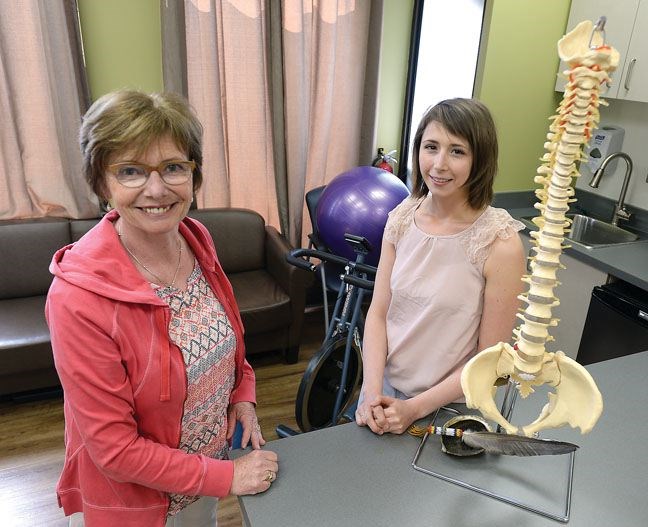Despite repeated calls by local physiotherapists and health advocates for increased physiotherapy training in northern B.C. the Ministry of Advanced Education, Skills & Training has no immediate plans to increase the number of student seats.
UBC currently has the only training institution for physiotherapists in B.C. Each year, the department of physical therapy accepts 80 students, all of which receive their instruction in Vancouver. In 2013, in partnership with UNBC, UBC established the northern rural cohort, reserving spots for twenty of these students to complete their clinical placements in northern and rural communities. But Terry Fedorkiw of the group Physiotherapists for Northern Communities said that the demand for trained physiotherapists is still dire, and not enough students are graduating from the program to meet the needs of the north.
"We need an extra 100 physios in the north, in order to fill the needs in comparison to the population," Fedorkiw said.
Northern B.C. currently has 104 physiotherapists working in the region, the lowest number by far of all other health regions in the province. Nine towns in the region do not have access to publicly funded physiotherapists. B.C. has the lowest number of training seats per capita in Canada. Ontario, Quebec and Alberta all train significantly more physiotherapists each year.
The Citizen spoke to two media representatives of the Ministry of Advanced Education, Skills & Training. Both representatives said no current proposals to increase the number of training seats for physiotherapists had been received by the ministry. However, an e-mailed statement stated that the ministry was exploring the possibility of bringing a full physiotherapy training program to the north.
According to Fedorkiw, several proposals have been made to the B.C. government from her organization urging an increase in the number seats in the UBC program in order to meet the increasing demand for trained physiotherapists. She believes several proposals related to enrolment in the department have also been made to the ministry by UNBC and UBC.
Fedorkiw and members of Physiotherapists for Northern Communities have made presentations to the Select Standing Committee on Finance and Government Relations for the last three years, urging that enrolment seats for UBC's physical therapy program be boosted to 100, while the northern and rural cohort be increased to 40. She and her group also met with former minister of Advanced Education Andrew Wilkinson last January, have secured the support of Prince George Mayor Lyn Hall and have submitted resolutions in support of physiotherapy training to the Union of B.C. Municipalities.
So far, she has seen no sign that the NDP government has given more attention to the shortage of physiotherapists in the region than the previous government.
"We are not hopeful of things moving too fast," Fedorkiw said.
Cathy Ulrich, CEO for Northern Health, said that further educational opportunities for physiotherapists would be desirable for health authorities.
"We do believe that if there is education for physiotherapists and rehab professionals in the north, that recruitment would become easier for those positions," Ulrich said.
"That is something that the community has been advocating for, and it's something that we've been working with UNBC and the various ministries on for a couple of years."
According to Bill Miller, the associate dean of health professions at UBC, there are currently no plans to increase the number of seats in the physical therapy program. He said that such a decision would need to involve input from many players, including UNBC, the ministry of Advanced Education, Skills & Training and the Ministry of Health.
"UBC is absolutely committed to helping increase the number of physical therapists in all communities in British Columbia. That said, plans for the future expansion of the physical therapy is not a decision that just UBC can make," Miller said.



